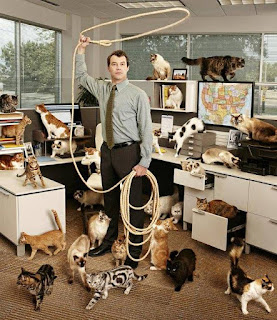The Need for Wise Leadership!
It
seems self-evident that decision-making has gotten more complex and tricky in
the first quarter of the Twenty-first Century. Being smart is certainly
necessary but it’s no longer sufficient for the wicked problems we must solve
if life on our planet is to be sustainable.
We
are facing the early impacts of runaway climate change, political discourse is
becoming increasingly authoritarian, social media algorithms are polarizing
opinion and creating “artificial ignorance”, enraged religious and political
criminals strike indiscriminately, walls are being built to keep out ‘the
other’, new technologies leapfrog each other in breathless utopian
anticipation, government and community institutions implode through loss of
trust, and business institutions seem more riven by greed than at any time
since the fall of the Roman Empire. We may well be on the way to the collapse
of civilization, even though we all agree on what to do, and yet we seem incapable
of taking action (Oreskes and
Conway, 2014).
As
Margaret Wheatley (2017) declares with uncharacteristic pessimism, “this world
does not need more entrepreneurs. This world does not need more technology
breakthroughs. This world needs leaders.” And moreover, leaders who are wise.
The ability to lead wisely has been all but
forgotten. All the knowledge in the world did not prevent the collapse of the
global financial system and the subsequent unearthing of unconscionable
behaviour by our most trusted financial and insurance institutions (Ferguson,
2019). “What is curious”, write management researchers David Rooney and Bernard
McKenna, “is that wisdom has been valued by humanity for thousands of years and
in all cultures, but it is something that managers, business schools and
management researchers rarely mention” (Rooney, McKenna, and Liesch, 2010).
We need to choose wise leaders. But wise
leaders are not always charismatic and charismatic leaders are rarely –
probably never – wise (Sternberg and Glück, 2019). There is nothing the world needs more right now than wisdom, and those coaches
and mentors who can facilitate wise thinking in the leaders they work with.
“Business now demands a
different kind of leader”, say famed Japanese Management Professors, Ikujiro Nonaka and Hirotaka
Takeuchi (2011) in their breakthrough Harvard Business Review article, “one who will make decisions knowing that the outcomes
must be good for society as well as the company… they also need a third, often
forgotten kind of knowledge, called phronesis, or practical wisdom.”
We need
wisdom because intelligence and creativity are not enough for creating a better
world. Sternberg (2019) distinguishes between deep wisdom, non-wisdom, and
foolishness. People can be highly creative or highly intelligent, they can
exhibit quasi-wisdom or pseudo-wisdom, but the six cognitive fallacies of
foolishness can be seen in too many of our business, political, and community
leaders on the world stage.
Ferguson, A. (2019). Banking Bad. Sydney, NSW:
HarperCollins.Oreskes, N.,
and Conway, E.M. (2014). The Collapse of Western Civilization. New York,
NY: Columbia University Press.
Nonaka, I., and Takeuchi, H.
(2011). The wise leader: How CEOs can learn practical wisdom to help them do
what’s right for their companies – and society. The Harvard Business Review,
May.
Oreskes, N.,
and Conway, E.M. (2014). The Collapse of Western Civilization. New York,
NY: Columbia University Press.
Rooney, D.,
McKenna, B., and Liesch, P. (2010). Wisdom and management in the knowledge
economy. London: Routledge.
Sternberg,
R.J. (2019). Race to Samara: The Critical Importance of Wisdom in the World
Today. In: Sternberg, R.J., and Glück, J. (Eds.) The Cambridge Handbook of
Wisdom. Cambridge, UK: Cambridge University Press.
Sternberg, R.J., and Glück, J. (2019). Why Is
Wisdom Such an Obscure Field of Inquiry and What Can and Should Be Done About
It? In: Sternberg, R.J., and Glück, J. (Eds.) The Cambridge Handbook of
Wisdom. Cambridge, UK: Cambridge University Press.
Wheatley, M.J. (2017). Who Do We Choose to Be? Oakland, CA: Berrett-Koehler.




Comments
Post a Comment